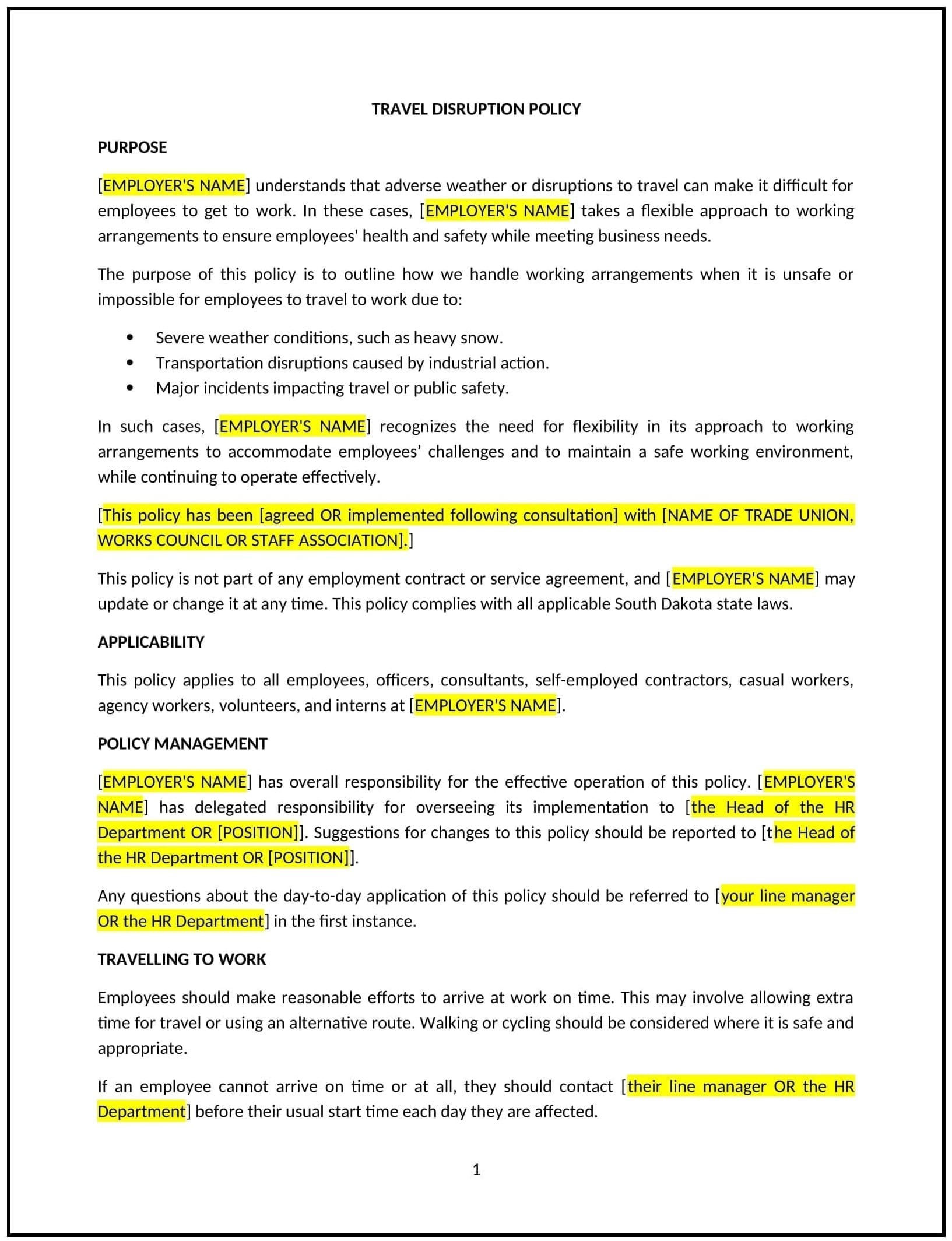Travel disruption policy (South Dakota): Free template
Got contracts to review? While you're here for policies, let Cobrief make contract review effortless—start your free review now.

Customize this template for free
Travel disruption policy (South Dakota)
This travel disruption policy is designed to help South Dakota businesses establish guidelines for handling unexpected disruptions during work-related travel, such as flight cancellations, natural disasters, or medical emergencies. It outlines procedures for employee safety, communication, and expense reimbursement during disruptions.
By adopting this policy, businesses can ensure employee well-being, minimize disruptions to operations, and align with general best practices for travel management.
How to use this travel disruption policy (South Dakota)
- Define travel disruptions: Specify the types of disruptions covered, such as flight delays, cancellations, or emergencies.
- Establish communication protocols: Provide guidelines for employees to notify the business of disruptions and receive assistance.
- Address safety measures: Outline steps employees should take to ensure their safety during disruptions, such as contacting local authorities or seeking medical help.
- Set reimbursement procedures: Explain how employees can claim reimbursement for additional expenses incurred due to disruptions, such as alternate transportation or lodging.
- Provide support resources: Include information about emergency contacts, travel insurance, or assistance programs available to employees.
- Train employees: Educate employees on the policy’s procedures and resources for handling travel disruptions.
- Review and update: Assess the policy annually to ensure it aligns with evolving business needs and travel industry standards.
Benefits of using this travel disruption policy (South Dakota)
This policy offers several advantages for South Dakota businesses:
- Ensures employee safety: Provides clear guidelines for handling emergencies and disruptions during travel.
- Minimizes operational impact: Helps employees and businesses manage disruptions effectively, reducing delays and costs.
- Aligns with best practices: Demonstrates a commitment to employee well-being and responsible travel management.
- Enhances employee confidence: Shows employees that the business prioritizes their safety and supports them during unexpected events.
- Reduces financial risks: Provides a framework for managing additional expenses caused by travel disruptions.
Tips for using this travel disruption policy (South Dakota)
- Communicate the policy: Share the policy with employees and include it in the employee handbook.
- Provide training: Educate employees on the policy’s procedures and resources for handling travel disruptions.
- Monitor compliance: Regularly review travel disruption incidents to ensure adherence to the policy.
- Address issues promptly: Take corrective action if disruptions are mishandled or employees are left without support.
- Update regularly: Review the policy annually to ensure it remains relevant and effective.